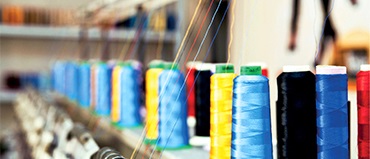The Textile Yarn Market is a critical segment of the global textile industry, serving as the foundation for producing fabrics used across various applications, including apparel, home textiles, and industrial textiles. Yarn is a continuous strand of fibers, whether synthetic or natural, that is spun and twisted to create a fabric's base structure. The market is witnessing significant growth due to increasing demand for sustainable textiles, technological advancements in yarn production, and a growing focus on performance fabrics.
Textile Yarn Market Overview: Threads of Change in a Growing Industry
The global textile yarn market is valued at USD 14.4 billion in 2023 and is expected to grow to USD 18.5 billion by 2028, registering a compound annual growth rate (CAGR) of 5.1% over the forecast period. A key driver of this growth is the expanding middle class in emerging economies. As more individuals move into the middle-income bracket, the demand for affordable, fashionable clothing increases, boosting the consumption of textile yarns.
What role does fashion and design influence play in driving the demand for textile yarns in the U.K. market?
The U.K. stands as one of the largest textile yarn markets in Europe, with the demand for textile yarns increasing significantly in recent years. This growth is driven by several factors, including technological innovations, a heightened focus on sustainability and quality, and the influence of fashion and design trends. With Europe’s deep-rooted history and tradition in the textile industry, the U.K. is particularly renowned for its expertise in manufacturing processes such as spinning, weaving, and dyeing. This strong foundation has helped solidify the U.K.'s leadership in textile yarn production.
https://www.marketsandmarkets.....com/Market-Reports/t
The U.K. is also recognized for its technological advancements in the textile sector. The industry has embraced automation, digitalization, and innovative spinning techniques, resulting in the production of high-quality and diverse textile yarns. These innovations have improved production efficiency and enhanced the range of options available to manufacturers and designers.
In addition, sustainability and ethical practices have become central to the U.K.'s textile yarn market. Consumers are increasingly aware of the environmental and social implications of their purchases, prompting British textile manufacturers to adopt sustainable practices, such as using organic and recycled fibers, reducing waste, and ensuring fair labor conditions. This commitment to sustainability and ethics has positioned U.K.-produced textile yarns as highly attractive to environmentally conscious consumers.
